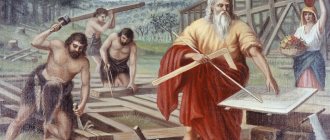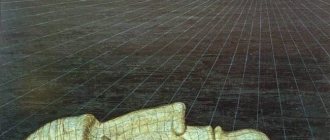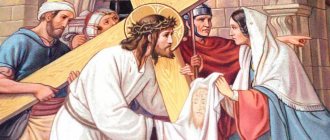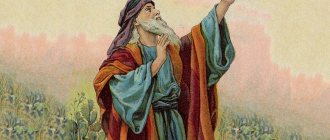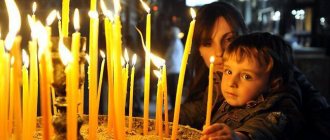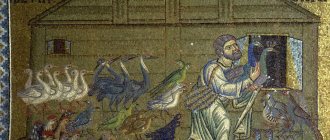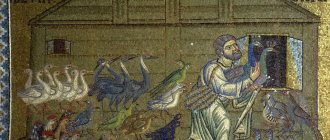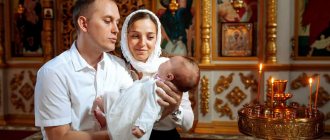Seven sons of Japheth
Genesis 10:1-2 says, “These are the genealogies of the sons of Noah: Shem, Ham, and Japheth. After the flood, their children were born. The sons of Japheth: Gomer, Magog, Madai, Javan, Tubal, Meshech and Tiras
.
Sons of Gomer: Askenaz, Riphath and Togarmah" The first grandson of Noah mentioned in Scripture was Gomer
.
He was the progenitor of the Cimmerians, who originally settled on the shores of the Caspian Sea. Ezekiel wrote that the descendants of Gomer, as well as the descendants of Togarmah (Gomer's son), lived in the northern reaches
(
Ezekiel 38:6
).
There is an area in modern Turkey that in New Testament times was called Galatia.
The Jewish historian Josephus wrote that the people who in his time (93 AD) were called Galatians or Gauls were formerly called Gomerites.1 They moved west into the area now called
France and Spain
.
For many centuries, France was called Gaul, named after the descendants of Homer. Northwestern Spain is still called Galicia to this day. Some of the Gomerites moved further into the area now called Wales. Historian Davies reports the traditional Welsh belief that the descendants of Homer "arrived in the land of the British Isle from France, about 300 years after the Flood."2 He also writes that the Welsh language is called Gomeragh (after their ancestor Homer). Other clan members settled in areas along the route of settlement, including Armenia. The sons of Gomer were “Askenaz, and Riphat, and Togarmah” (Genesis 10:3). The Encyclopedia Britannica
says that Armenians traditionally consider themselves descendants of Togarma and Askenaz.3 The borders of ancient Armenia extended into the territory of
Turkey
.
The name Turkey probably comes from the name Togarm. Others resettled in Germany
.
Ashkenaz
is the name of Germany in Hebrew.
Figure 1. Ruins in Turkey. There is evidence that the name of the country was formed from a descendant of Noah named Togarma (see text). The next grandson mentioned in Scripture is Magog
.
According to Ezekiel, the descendants of Magog lived in the northern lands
(Ezekiel 38:15, 39:2).
Josephus writes that those whom he calls Magogitians were called Scythians by the Greeks.1 According to the Encyclopædia Britannica, the ancient name of the area that today includes parts of Romania
and
Ukraine
was
Scythia.4
The next grandson is
Madai
.
Together with Elam, the son of Shem, Madai is the ancestor of modern Iranians. Josephus says that the Greeks called the descendants of Madai the Medes.1
Whenever the Medes are mentioned in the Old Testament, the Hebrew word Madai (
medai
) is used.
After the reign of King Cyrus, the Medes are always mentioned (except once) together with the Persians. These two nations became one kingdom, ruled by one law - “the law of the Medes and Persians” (Dan. 6:8, 12, 15). Later they were simply called Persians
.
Since 1935, they began to be called in accordance with the name of their country - Iranians
.
The Medes also “settled in India
.”5
Javan
is the Hebrew name
for Greece
.
The names Greece, Greece, or Greeks appear five times in the Old Testament, and always in the form of the
Hebrew
word
Javan .
Daniel speaks of “the king of Greece” (Daniel 8:21), which literally means “the king of Javan.” The names of Javan's sons were Elisha, Tarshish, Kittim, and Dodanim
(Genesis 10:4).
All of them had family ties with the Greek people. The Aeolians (an ancient Greek people) got their name from Japheth's grandson Elisha. Tarshish or Tarsus was located in an area called Cilicia (modern Türkiye). The Encyclopedia Britannica
states that Kittim is the biblical name for
Cyprus.6
The Greeks worshiped Jupiter under the name Jupiter Dodeneus, who took his name from the fourth son of Javan (Dodim).
The name Jupiter comes from the name Japheth. His oracle was located in the city of Dodona. The next grandson is Tubal
.
Ezekiel mentions him along with Gog and Meshech ( Ezekiel 39:1
).
Tiglath-pileser I, king of Assyria, reigning around 1100 BC, names the descendants of this grandson as Tabali. Josephus called them Tobelites, who later became known as Iberians.1 “In the time of Josephus, the Romans called this territory Iberia. Iberia was located where Georgia
, the capital of which to this day bears the name of Tubal - Tbilisi.
From here, having crossed the Caucasus Mountains, the people moved further to the northeast, calling the Tobol River after their tribe, and hence the name of the famous city of Tobolsk
”7
Meshech
, the name of Noah’s next grandson, is the ancient name of the city of Moscow.
Moscow
is both the capital of Russia and the region that surrounds the city.
One of the geographical areas, the Meshchera Lowland, is still called by the name of Meshekha, having undergone virtually no changes over the centuries. According to Josephus, the descendants of Thiras
were called Tyrians.
The Greeks changed their name and they became known as Thracians.1 Thrace stretched from Macedonia
in the south to the Danube River in the north and to the Black Sea in the east.
of Yugoslavia
known to us belonged to this area . The World Encyclopedia says: “The people of Thrace were cruel Indo-Europeans who loved to fight and plunder.”8 The descendants of Firas worshiped him under the name Turas, that is, Thor - the god of thunder.
Conscription period
Another thousand years passed, and paganism began to spread on earth, and at that moment Almighty Allah sent his next prophet Nuh or Noah into the world to people. Nuh became a prophet when he was four hundred and eighty years old, and he lived only nine hundred and fifty years, and he spent his whole life calling for the worship of Allah Almighty. After the Great Flood occurred, Nuh lived for another three hundred and fifty years.
Nuh became the first prophet on whom the Almighty entrusted the mission of the Messenger of Allah - this is stated in the hadith about intercession. As reported by Abu Hurayrah, the Prophet Muhammad ﷺ said that when they came to Adam and called him “the father of people,” whom Allah created with his hand and breathed into him from his Holy Spirit, they called on him to pay attention to the situation in which they found themselves descendants and what they had come to, but Adam answered them that Adam himself needed protection, because he also disobeyed the Almighty, who forbade him to eat the forbidden fruit. And then Adam called people to go to the prophet Nuhu. And they went to Nuh and named him the first of the messengers of Allah, whom he sent to the inhabitants of the earth, and whom Allah called His grateful servant. And they asked him to intercede with Allah on their behalf.
Nuh called on people to believe in the One God in various ways and means, and day and night he was engaged in carrying out his messenger mission, intimidating and encouraging them. The prophet Noah had to endure a lot during the times when he came out to people with a call to believe in the One God, Allah. He called to leave idols and believe in the One God, but they did not believe him and the majority continued to believe in idols, and Noah was mocked, mocked and insulted, even beaten. People did not want to give up their delusions, and everyone also worshiped idols, and showed hostility towards Nuh himself: they belittled his dignity and despised all those who believed and followed him, calling him a liar. Threats were thrown at him, they threatened to stone him, expel him, and insults were inflicted on believers.
Four sons of Ham
Next come the four sons of Ham: Cush, Mizraim, Puth, and Canaan
(Genesis 10:6).
Ham's descendants primarily populated southwestern Asia and Africa
.
The Bible often speaks of Africa as the land of Ham ( Ps 105:23, 27; 105:22
).
The name of Noah's grandson Cush
is a Hebrew word for ancient
Ethiopia
.
The word Ethiopia in the Bible is always, without exception, a translation of the Hebrew word Cush
.
Josephus, who calls them Hus, wrote that “even in our days the Ethiopians themselves call themselves Husseins (Husites), as the inhabitants of Asia also call them.”9 Noah’s next grandson is Mizraim
.
Mizraim
is the Hebrew name
for Egypt
.
The name Egypt appears hundreds of times in the Old Testament and (with one exception) is always a translation of the word Mizraim
.
For example, at the burial site of Jacob, the Canaanites saw the crying of the Egyptians and named the place Abel Mizraim
, meaning the crying of the Egyptians (
Genesis 50:11
).
The stories of the great empires of the past: Egypt, Assyria, Babylon and Persia are strongly associated with biblical characters directly related to the sons of Noah. The origins of most tribes and peoples can be traced back to the sons of Noah - and this can be easily verified by examining their family tree. Fut
- the name of the next grandson - is the Hebrew name
for Libya
.
This ancient name appears three times in the Old Testament. The ancient Fut River was located in Libya. By the time Daniel lived, the name had been changed to Livia. Josephus says: “Puth populated Libya and called the inhabitants of the country Phutians.”9 Canaan
, the next grandson of Noah, is the Hebrew name for the territory that was later called
Palestine
, i.e.
modern territory of Israel and Jordan. It is worth saying a few words about the descendants of Ham ( Genesis 10:14-18
).
They were: Philistae, who is undoubtedly the ancestor of the Philistines (from which the name of Palestine was derived), Sidon, the founder of the ancient city named after him, and Hittite, the founder of the ancient Hittite Empire. Canaan is also spoken of in Genesis 10:15-18
as the progenitor of the Jebusites (Jebus is the ancient name of Jerusalem -
Judges 19:10
), the Amorites, Gergesites, Hivites, Arkeites, Sinites, Arvadites, Zemarites and Himathites - the ancient peoples who inhabited land of Canaan. The most famous descendant of Ham was Nimrod, the founder of Babylon, as well as Erech, Akkad and Chalneh in the land of Shinar (Babylonia).
Release of the raven and dove from the ark
The first messenger of the water's retreat was the raven. Seeing that the earth was gradually freed from water, Noah released a raven from the ark. But the raven returned. Then the raven flew into the ark again and again until the earth was dried up.
Then Noah released the dove, but there was no place for it on earth, and it returned. Seven days later, released again, he arrived with an oil leaf. And the third time he did not return at all, which meant the final drying of the land. Then Noah, his family and the animals that had escaped with them went outside.
Five sons of Shem
And finally, the sons of Shem: Elam, Asshur, Arphaxad, Lud and Aram
(Genesis 10:22).
Elam
is the ancient name of
Persia
, which itself is the ancient name
of Iran
.
Before the reign of King Cyrus, the people who lived here were called Elamites, they are even mentioned several times under this name in the New Testament. In Acts 2:9
, the Jews from Persia who were present on the Day of Pentecost are referred to as Elamites.
Thus, the Persians are descendants of both Elam, the son of Shem, and Madai, the son of Japheth (see above). Since the 1930s, they have called their land Iran. It is very interesting to note that the word "Aryan", which so fascinated Adolf Hitler, is a form of the word "Iran". Hitler wanted to create a pure Aryan “race” consisting of superhumans. But the term “Aryan” itself denotes a mixed line of Semites and Japhetites! Assur
is the Hebrew word for Assyria.
Assyria was one of the great ancient empires. Whenever the words Assyria or Assyrian are found in the Old Testament, they are translated from the word Assur. Assur was one of the first people to be deified and worshiped by his own descendants. “Throughout the entire existence of Assyria, i.e. before 612 BC, reports of battles, diplomatic and foreign relations were read aloud, referring to the image of Assur; all the Assyrian kings believed that they wore their crown only with the divine permission of the spirit of Assur.”10 Arphaxad
was the progenitor
of the Chaldeans
.
This fact is "confirmed by the Hurrian (Nuzi) tablets, where his name appears as Ariphurra
- the founder of Chaldea."11 His descendant, Eber, transmitted his name
to the Jewish
people through the line Eber-Palek-Raghab-Serukh-Nahor-Terra-Abram (
Genesis 11 :16-26
).
Eber's other son, Joktan, had 13 sons (Genesis 10:26_30), all of whom settled in Arabia.12
Lud
was the ancestor of
the Lydians
.
Lydia was located in what is today Western Turkey
.
The ancient capital of Lydia was the city of Sardis. One of the seven churches of Asia was located at Sardis ( Rev 3:1
).
Figure 2.
A huge carved statue of the great Egyptian pharaoh Ramses II.
Aram
is the Hebrew name
for Syria
.
Every time the word Syria appears in the Old Testament, know that this word is translated from the word Aram. The Syrians call themselves Aramaic, and their language is called Aramaic. Before the expansion of the Greek Empire, Aramaic was the international language ( 2 Kings 18:26ff
).
As Jesus hung nailed to the cross and spoke the words, “Eloi, Eloi, lama sabachthani” ( Mark 15:34
),13 He spoke in Aramaic, the language of the majority of the people.
The story of the Flood and Noah's Ark
At the age of five hundred years, the prophet Noah received from the Lord a revelation about the flood - the upcoming punishment of mankind for the sin that enslaved him. Then Noah learned that he had to save himself and his family from death by entering the ark along with many animals.
Noah took a hundred years to build the ark. For an entire century, the construction of a giant ark, ridiculed by others, rested on unshakable faith in the word of the Lord. They did not want to listen to Noah's stories about the coming disaster, continuing to live an unbridled life.
Noah was named a preacher of truth in the Second Epistle of the Apostle Peter for his firmness in faith and constancy in trying to return sinners to the path of Truth.
In a new revelation, the Lord told Noah and his family to enter the ark. Then it was said that water would pour from the sky for forty days, destroying all living things. On the day of this revelation, animals and birds began to flock to Noah’s ark from all sides of the earth. Noah's contemporaries, seeing elephants, lions, and monkeys entering the ark, only marveled at such a sight, continuing to persist and refusing to believe the preaching of the righteous man.
The doors of the ark were open for another week in anticipation of the repentance of sinners. But no one else entered them. And the sky opened up. The flood filled the earth gradually, throughout the forty days leaving, although fading, chances for repentance. The Apostle Peter claims that among those who perished there were indeed people who brought repentance to the Lord in these last days and accepted death with all humility.
For another five months the water on the earth did not decrease, and then, on the first day of the tenth month from the beginning of the flood, the tops of the mountains became visible. The Ark landed on the Ararat Mountains.
Links:
- Josephus: The Complete Works, Kregal Publications, Grand Rapids, Michigan, Antiquities of the Jews, 1:6:1 (i.e. Book 1, Chapter 6, Section 1). Return to text.
- D. Davies, History of the Welsh Baptists from 63 to 1770, D.M. Hogan, Pittsburgh, 1835, reprinted by The Baptist, Aberdeen, Mississippi, p. 1, 1976. Return to text.
- Encyclopaedia Britannica, 2:422, 1967. Return to text.
- Encyclopaedia Britannica, 20:116, 1967. Return to text.
- A.K. Coustance, Three Sons of Noah, vol. 1, Doorway Papers, Zondervan, Michigan, p. 92, 1975. Return to text.
- Encyclopedia Britannica 3:332, 1992. Return to text.
- Bill Cooper, After the Flood, New Wine Press, Chichester, England, p. 203, 1995. Return to text.
- World Encyclopedia, vol. 18, p. 207, 1968. Return to text.
- Link 1, 1:6:2. Return to text.
- Link 7, page 170. Return to text.
- Link 7, page 172. Return to text.
- Link 5, page 117. Return to text.
- Matthew 27:46 and Mark 15:34 contain quotations from Psalm 22:1 in Aramaic, but Matthew changed Eloi to the Hebrew word Or. Return to text.
- For example, we have not attempted here to trace the origins of the Chinese. Information regarding this topic is contained in the article "China's Original, 'Unknown' God," Creation
20(3):50-54, 1998. Also, the hieroglyphs of ancient China show that the Chinese knew the message of the Gospel found in the book of Genesis.
Link: https://www.origins.org.ua/page.php?id_story=625#ixzz43RZfwr00
Noah's great-grandfather
There are many remarkable people among Noah's ancestors, but it is unlikely that one will be able to find a second one like Enoch. The seventh from Adam, according to various biblical texts, was the first to walk in the ways of the Lord after the death of Abel. Having pleased God, Enoch was transported from the place of his life without meeting death.
Often the story of Enoch's migration is considered to contradict the words of the Gospel of John that no one except our Lord Jesus Christ ascended to heaven. The reason for the confusion is probably the speculation about Enoch's relocation to heaven, although there are no direct indications of this in the Bible.
Indeed, the Old Testament mentions Enoch's translation twice:
- According to the book of Genesis, “he was no more, because God took him.” He is no longer where he was, but it is not said where he moved;
- in the book of Jesus, son of Sirach, it is mentioned that Enoch “was caught up from the earth,” that is, his transfer took place above the earth.
The Apostle Paul in his letter to the Hebrews says “he was no more, because God carried him away.” There is no talk of moving to heaven. To understand the story of Noah, it is important that the only righteous people of the antediluvian world were saved by the Lord and received a reward from Him.
There are several speculations regarding the question: Why did Noah curse Canaan and not Ham?
Noah woke up from his wine and learned what his youngest son had done to him, and said: Cursed is Canaan; He will be a servant of servants to his brothers. (Gen. 9.24-25)
Canaan son of Ham
Over the centuries, this biblical story of a curse has caused much controversy. What is Ham's sin? Why did Noah curse Canaan and not his son?
John Chrysostom suggests that the righteous man, the father of Ham, could not break the blessing given by the Lord to him and his family with a curse. But it was still necessary to punish his son for the indecency of his act.
Righteous Noah punished Ham through his son Canaan.
More than anyone else, Canaan embodied the typical traits of his father and was especially dear and close to him. Thus, it was by cursing the son of Ham that the patriarch inflicted the most severe punishment on him. This was Ham's fatherly curse.
Speaking about the intoxication of his forefather, John Chrysostom notes that the Bible “gives him a complete excuse.” According to him, the righteous man did not know what harm drinking wine could bring him.
Blessed Theodoret also sees in this a just reward for Ham. Having sinned against his father, he received punishment through the curse of his son.
Noah's curse came true - the Canaanites were either exterminated or conquered by the descendants of Shem.
Others, referring to what is said in Scripture: “Noah woke up from his wine and learned what his younger son had done to him,” suggest that by “lesser son” they mean Noah’s grandson Canaan, the youngest of all his grandchildren.
Since it is known that Ham was the middle son of a righteous man, born after Shem, and Japheth was Ham’s younger brother.
It was Canaan who first saw the indecent position of the righteous old man. Laughing, he pointed it out to his father, who, in turn, instead of covering his nakedness, thereby showing his parent due respect, hastened to tell everything to his brothers.
Proponents of this opinion believe that Canaan, who committed evil, was cursed not because of his father, but because of his own transgression. Although they do not consider the punishment completely fair, because Canaan was still at a young age.
Sibylline oracles
According to the Sibylline Oracles, the wives Shem, Ham and Japheth enjoyed fantastically long lives, living for centuries, speaking prophecies to every generation they saw come and go.[1] According to the preface to the Oracles
, the author of the Sibyl was the daughter-in-law of Noah: "Babylonian Sibyl", Sambete - who, 900 years after the Flood, allegedly moved to Greece and began writing oracles.
The writings attributed to her (at the end of Book III) also hint at the possible names of members of her family who lived before the Flood - father Gnostics, mother Circe; Elsewhere (in Book V) she calls Isis her sister. Other early sources[ which?
] similarly name one of the Sibyls Sabba (see Sibyl in the Jewish Encyclopedia).
